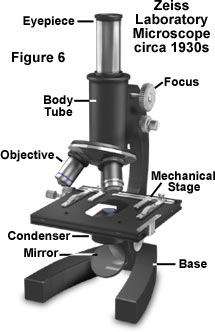
Its a new platform for AL-Kausra's learners in each subject.😊😊This Article is defining Introduction to Microscope,What is Microscope?/Use Of Microscope?
Microscope:
Microscope:
A magnifying lens is an instrument used
to see objects that are too little to be seen by the exposed eye.
Microscopy is the study of exploring
little protests and structures utilizing such an instrument.
Here we examine about compound (or
light) magnifying lens.
Essential
parts of the magnifying lens:
Eyepiece
Lens: the focal point at the top that we glance through. They are normally 10X
or 15X power.
Tube:
Connects the eyepiece to the target objective lenses.
Arm:
Supports the tube and interfaces it to the base
Base:
The base of the magnifying instrument, utilized for help
Illuminator: A consistent light source utilized instead
of a mirror. On the off chance that you’re magnifying lens has a mirror; it is
utilized to reflect light from an outside light source up through the base of
the stage.
Stage: The level stage where we put our slides.
Stage cuts hold the slides set up. On the off chance that our magnifying
instrument has a mechanical stage, we will have the capacity to move the slide
around by turning two handles. One moves it left and right, alternate moves it
here and there.
Spinning Nose-piece or Turret: This is the part that holds at least two
target focal points and can be turned to effectively change control.
Target Lenses: Usually you will discover 3 or 4 target
focal points on a magnifying lens. They quite often comprise of 4X, 10X, 40X
and 100X forces. At the point when combined with a 10X (most normal) eyepiece
focal point, we get add up to amplifications of 40X (4X times 10X), 100X, 400X
and 1000X.
Rack Stop: This is an alteration that decides how shut
the target focal point can get to the slide. It is set at the plant and shields
understudies from turning the powerful target focal point down into the slide
and breaking things
Diaphragm or Iris: Many magnifying instruments have a rotating
disk under the stage. This stomach has diverse estimated gaps and is utilized
to shift the power and size of the cone of light that is projected upward into
the slide.
If u have any question then comment plz...Written By:
Ma'am Noreeta Ashfaq(BS Zoology)
V usefull for paractical activity
ReplyDeleteSmart effort. Welldone
ReplyDeletegood
ReplyDeleteexellent
ReplyDeleteexellent
ReplyDeleteexellent
ReplyDelete